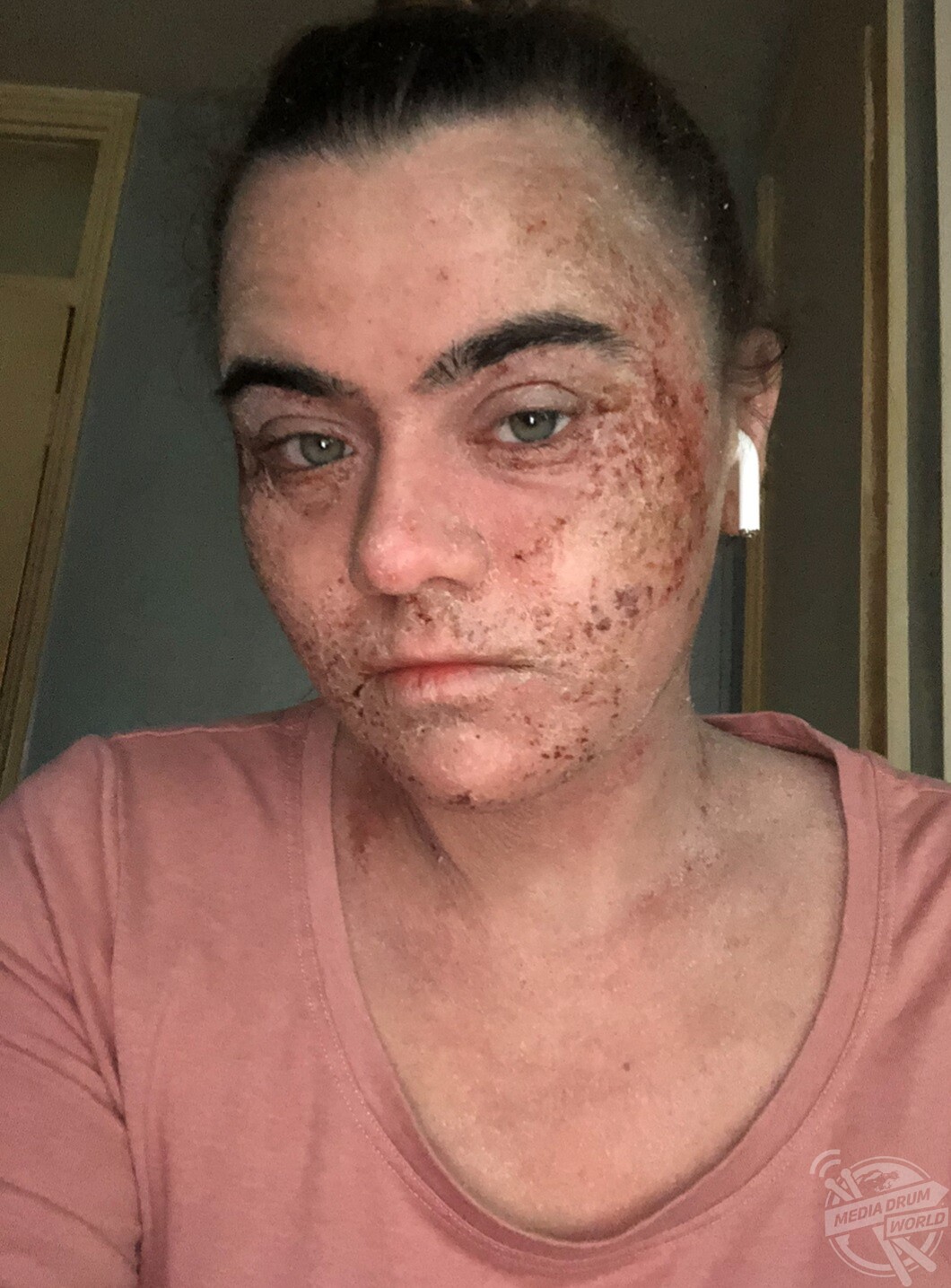
By Rebecca Drew
THIS WOMAN was left with a ‘BONE DEEP ITCH’ and face so painful that it hurt to EAT after discovering she was ALLERGIC to the eczema medication doctors had been prescribing her for TWENTY-FIVE years.
Like many young children, social media executive Gemma Blackman (28) from New Malden, Surrey, UK, was diagnosed with eczema when she was two years old after she developed symptoms in the creases of her arms and legs.
Doctors never thought to investigate any underlying cause for Gemma’s sore skin and immediately prescribed her steroid creams to apply to her skin and emollients to wash with.
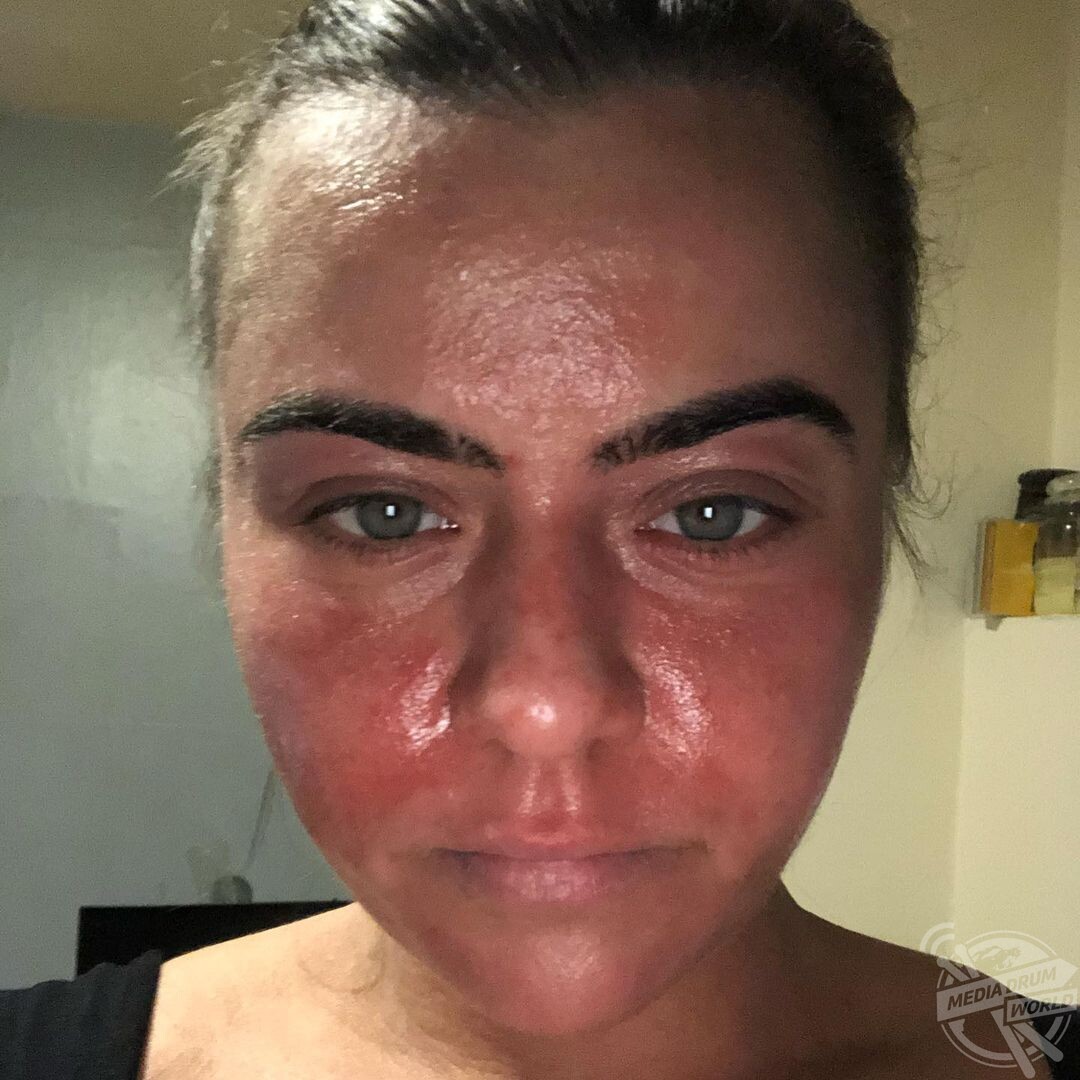
Whilst the creams appeared to work for a limited period, Gemma’s eczema got worse and the areas of skin affected got bigger. In response, doctors prescribed Gemma stronger creams to help heal her apparent eczema.
When she was 21, Gemma had a sudden anaphylactic reaction to a Brazil nut and a blood test confirmed that she was allergic to all nuts, cats, dogs, dairy and wheat but even cutting these things out of her life did not bring an improvement to her skin condition.
By 2018, Gemma was regularly waking up with a swollen face and it was then she discovered topical steroid addiction (TSA) and topical steroid withdrawal (TSW) – when the skin reacts adversely after long-term use of topical steroids is stopped. Gemma was in denial that she could be suffering from such a condition as she trusted that doctors were prescribing her creams so she could get better.

Gemma was prescribed immunosuppressant cream Protopic to heal her skin and was told that she would get relief by removing stress and dust from her life. She was also prescribed oral steroid tablets but after she had finished the six-week course, her skin was still reactive.
In May 2019, Gemma was prescribed Methotrexate – an immunosuppressant that is also used as a chemotherapy drug in higher doses to treat her worsening ‘eczema.’ Due to the potency of the drug, Gemma had regular tests to check her liver function, followed by an allergy test six months into treatment.
The test in January 2020, revealed Gemma was allergic to propylene glycol, an ingredient found in shampoos, conditioners, cleaning products, hand sanitiser, polyester and even steroid creams. Realising that she was in fact allergic to the steroid creams that had been prescribed to help her skin condition, she ceased using them immediately.
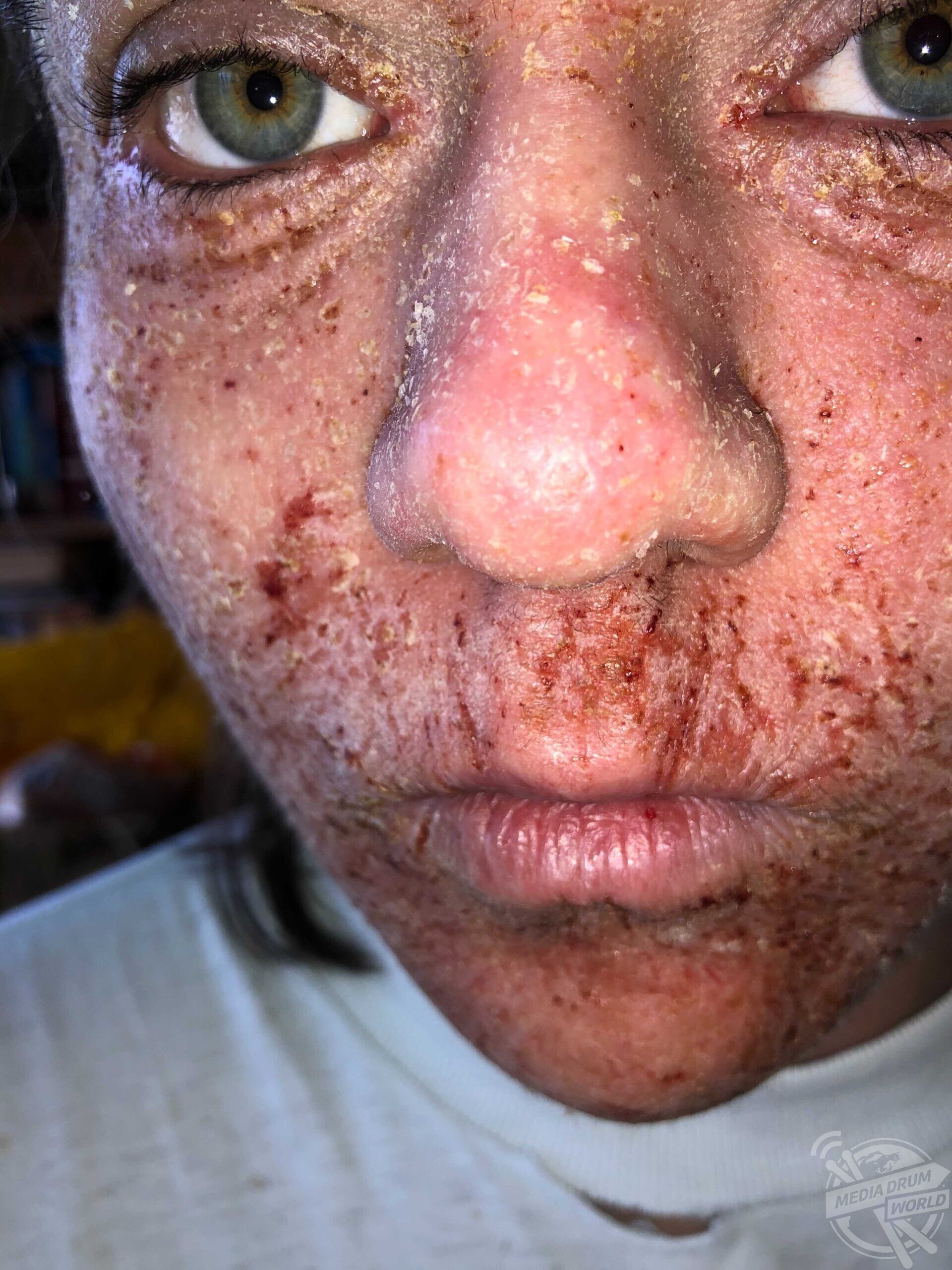
Gemma has been going through TSW ever since and after stopping Methotrexate in October 2020 because she didn’t want to be in the high-risk category for the coronavirus, her symptoms have worsened.
Daily, Gemma deals with her oozing flaking skin which is sometimes so painful it hurts to open her mouth to eat. Despite going through a visible change in her appearance, Gemma says she is the most confident she has ever been, and she remains positive to raise awareness of the dangers of topical steroid creams.
“They [steroid creams] were great for some time, almost like magic to be honest,” said Gemma.
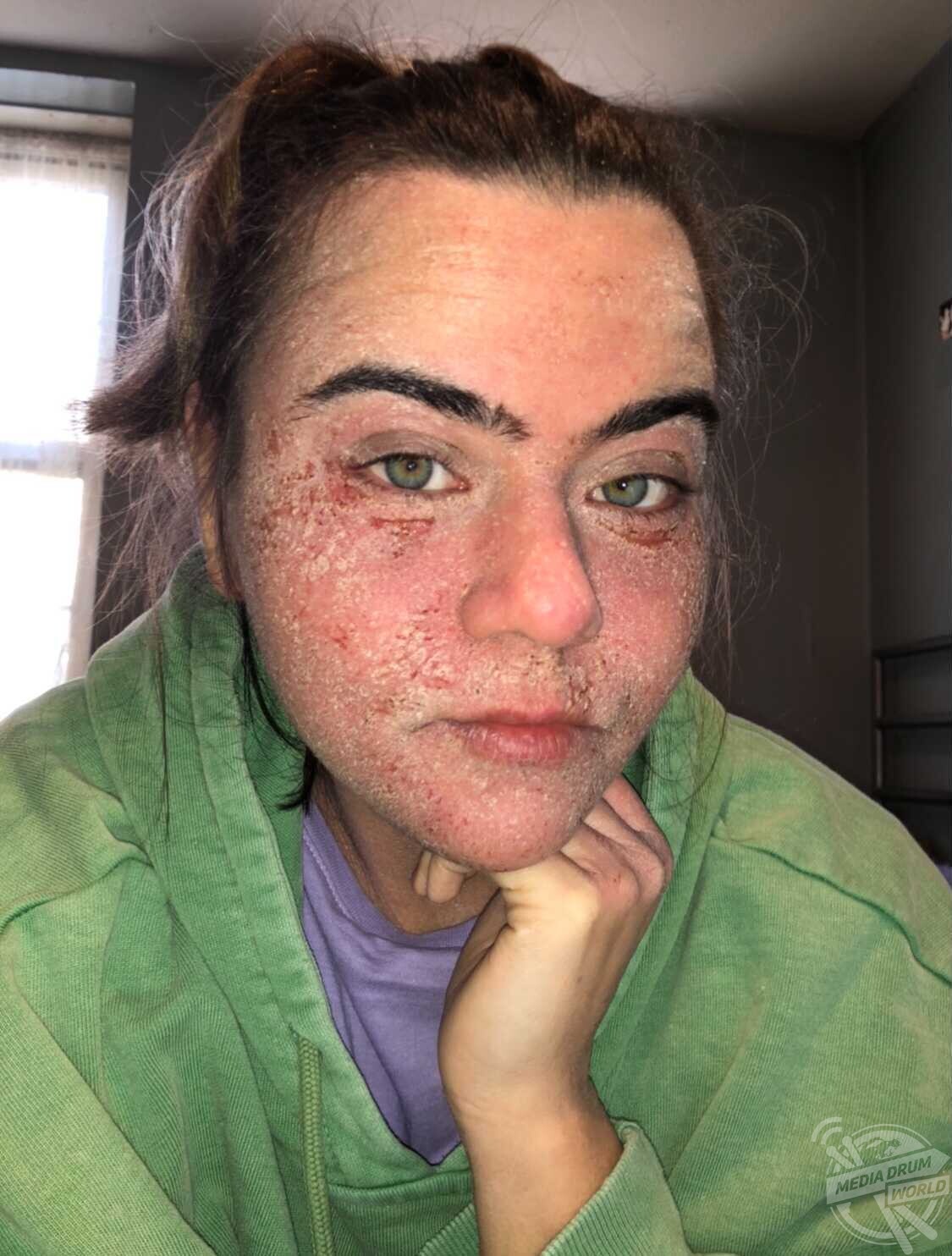
“Every time I felt some sort of irritation coming back, I knew if I put the cream on by the next day it would have almost completely cleared.
“When I first discovered TSW, it made some sense but I definitely suffered some denial. I couldn’t understand how something that I had always been told to use, and even told that I didn’t use enough of, could have caused all these problems.
“I got quite frustrated and angry thinking about how I had never questioned it before as doctors, the people I trusted and believed in, had always told me that I had to use it as a lifelong treatment.
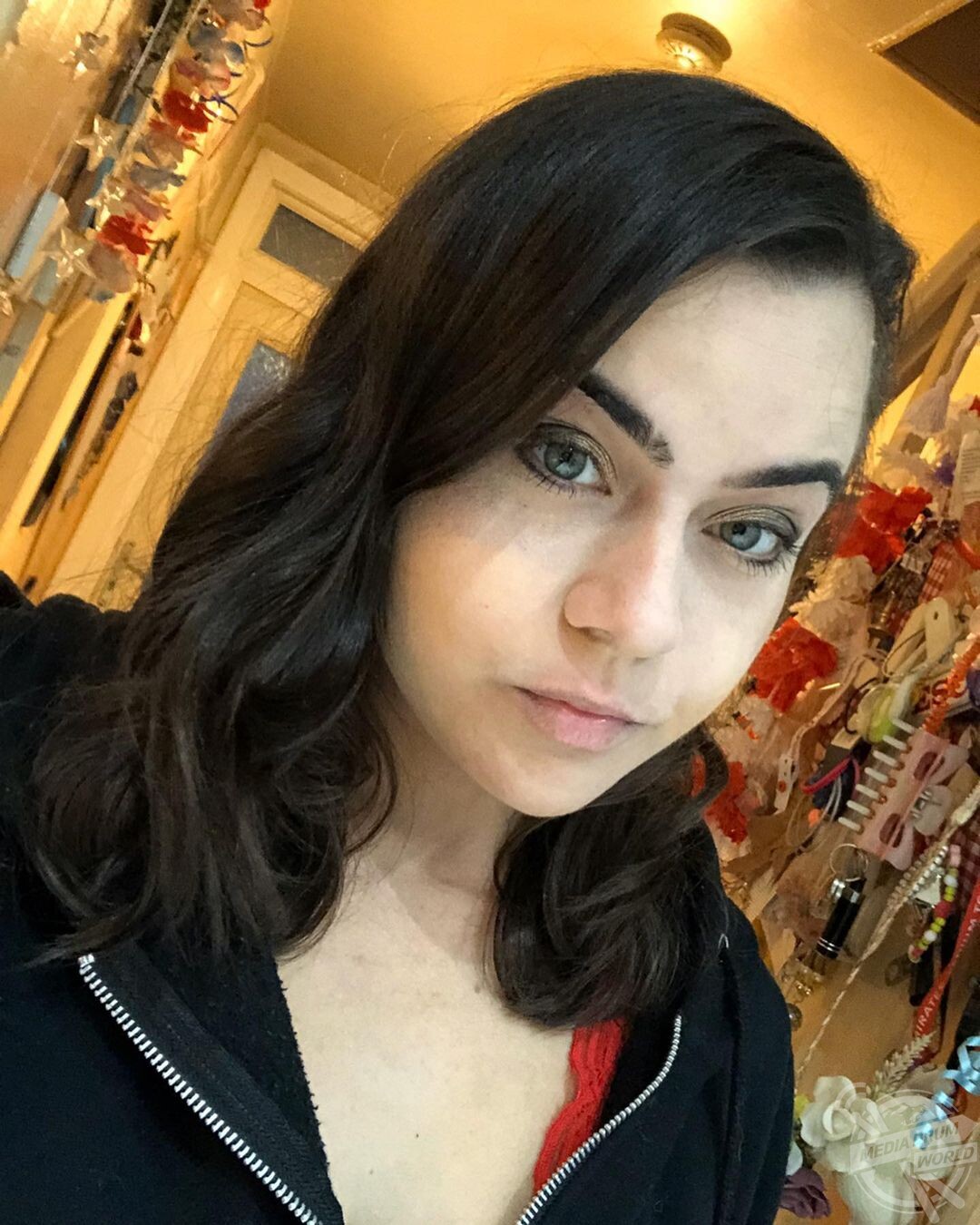
“Since cutting out the allergens, I have been able to live a little less itchy although it affects every aspect of my life by having to check labels on everything from clothing to food, cosmetics, and cleaning products.
“It also had a great impact on my mental health too as I was able to actually discover that something was wrong and I wasn’t going mad as previously I had been told it was all to do with dust and stress.
“Methotrexate allowed me to get part of my life back. I was waking up with a swollen face most days and then recovering from it for the rest of the week.
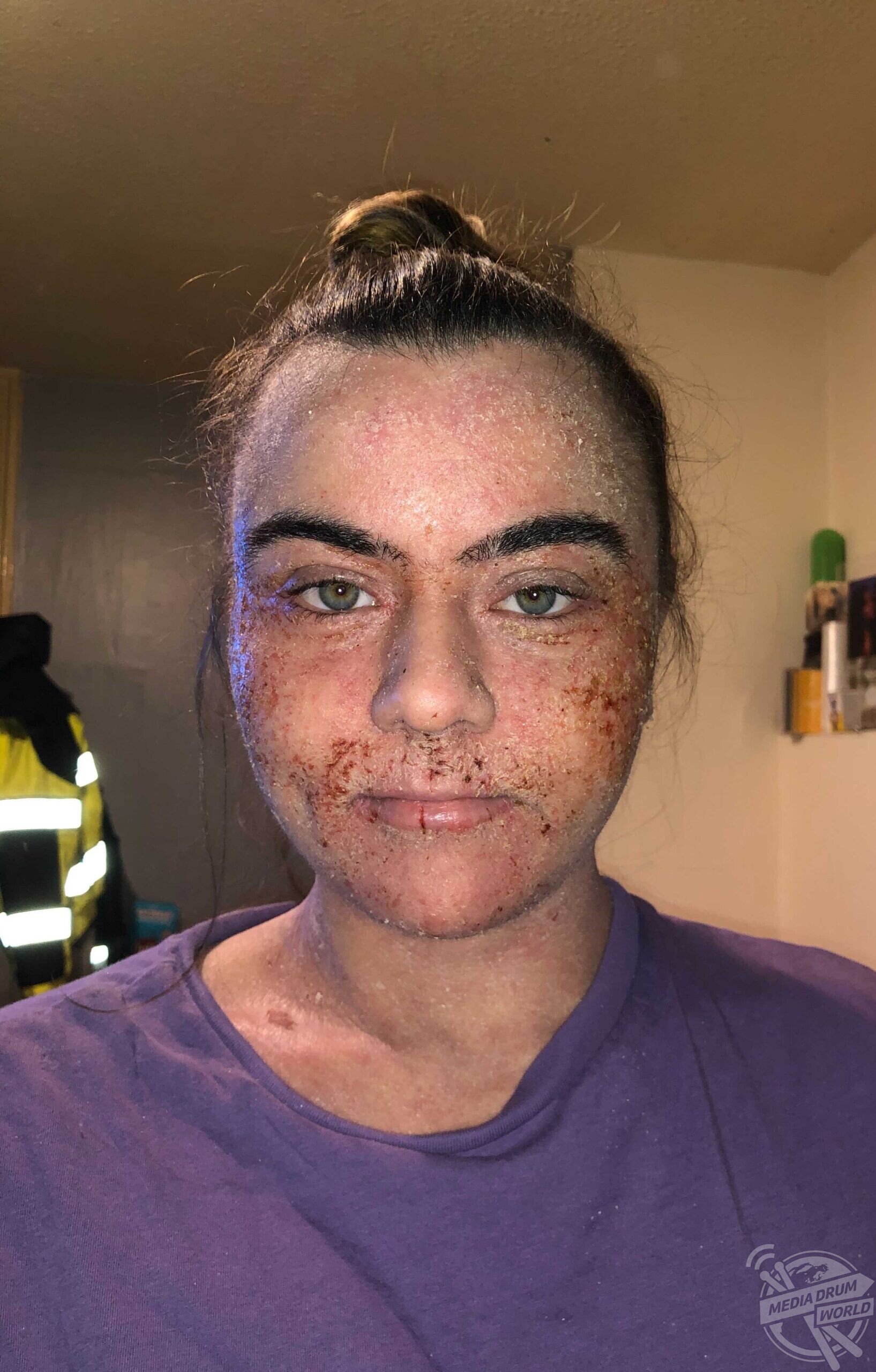
“At this point, topical steroids weren’t working anymore so it felt like the only option I had that stopped my skin from the constant itch and inflammation and at this point, I was very self-conscious as it was my face that was suffering the most.
“After completely stopping all medications, I began to experience flares from my skin in the usual places that had previously suffered but then as time continued, the rashes began to move to places where I hadn’t used the creams at all.
“Every day I would wake up feeling pretty rough but as time continued and it was getting worse, it began to get frustrating as you would hope things would improve. The weird thing is, the condition changes so much throughout the day – at first it was scary because I began experiencing extreme swelling especially on my face.
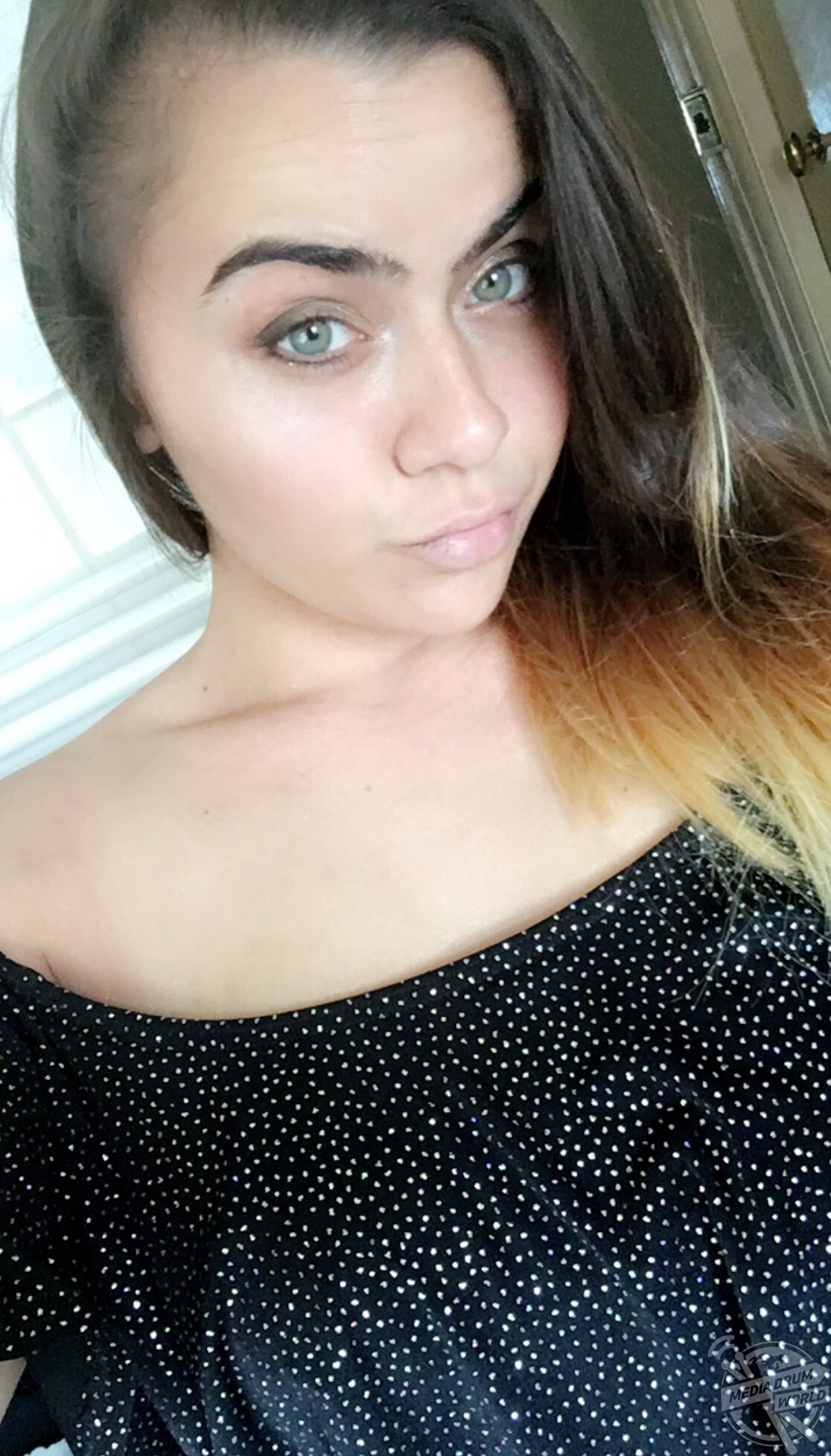
“Other symptoms that came on included not being able to regulate temperature – so feeling hot or cold randomly – cold sweats, and insomnia along with a ‘bone deep itch’ and very oozy skin.
“The most difficult thing for me has been to continue every day with symptoms getting worse before getting better – although looking at progress photos, there are clear improvements but because the condition can affect different parts of your body at different times it’s quite frustrating.
“One day my face could be in absolute agony where it’s impossible to even open your mouth enough to eat and the next, I may not be able to bend my arms properly.
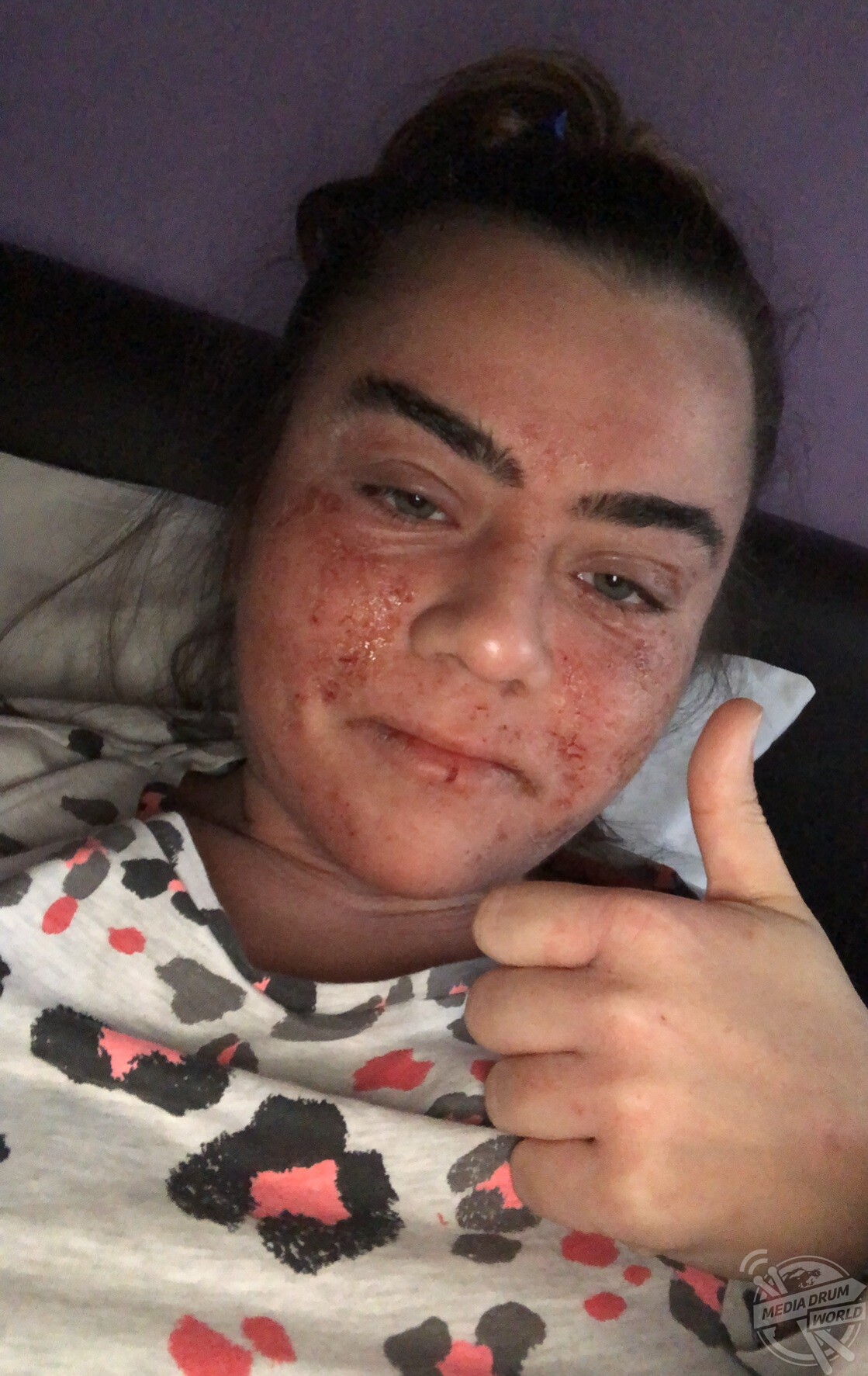
“You also start to get a bit paranoid wondering when you might flare next – especially if you’re going through a couple of less itchy days.
“It also has had a massive toll on my mental health. One of the things that really hurts me is the feeling of frustration because it’s almost impossible to avoid itching sometimes and it’s very tough not to get down, blaming yourself for the damage you’re doing to your skin, constantly thinking, ‘Maybe I could heal better if I didn’t itch’ or just the feeling after you’ve been itching as the skin is so thin it then oozes and feels really cold.
“The allergies and triggers that can make TSW much worse have also had an impact on my health mentally because it’s difficult having to go through most of your twenties continuously thinking about your skin.
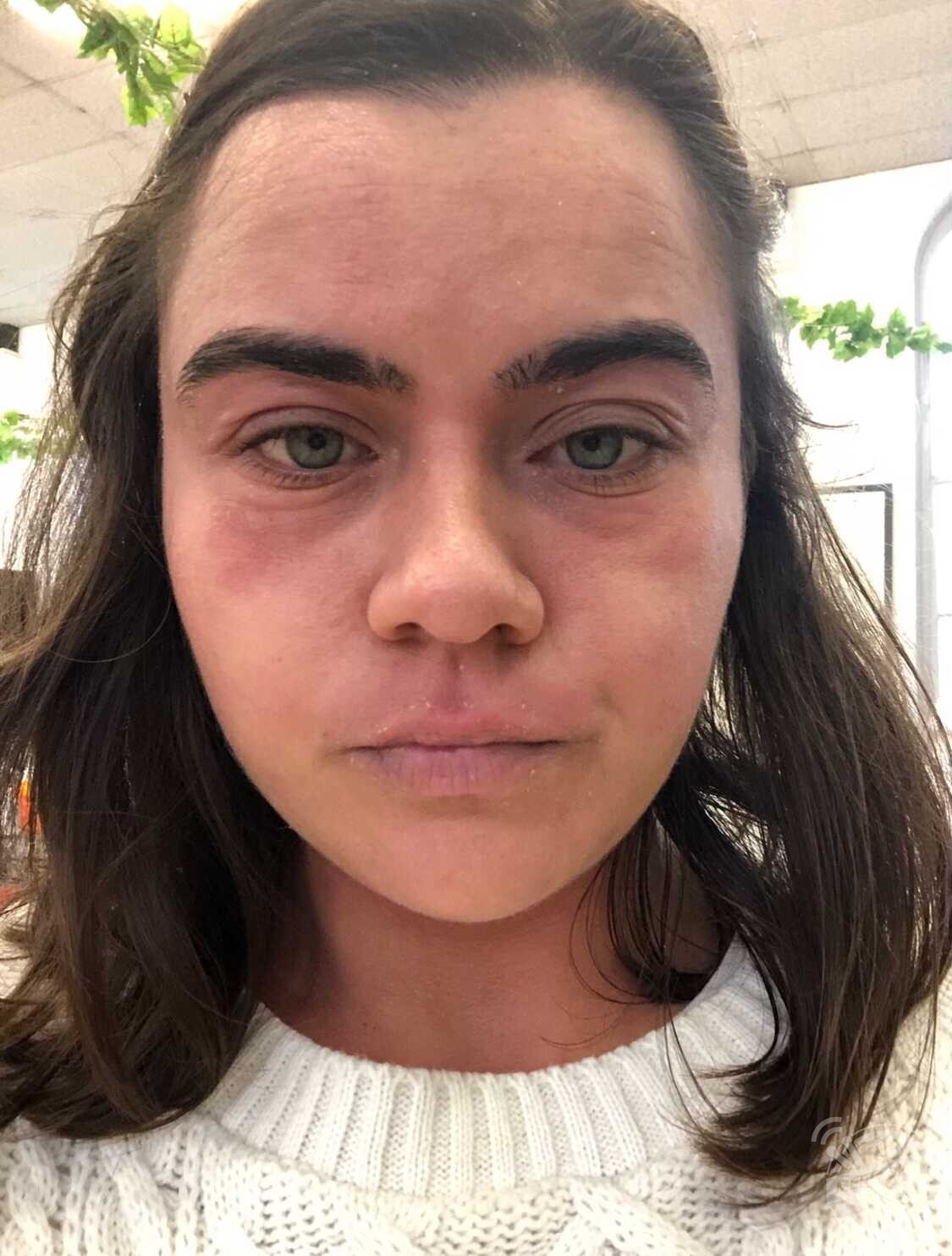
“Now I am having to cut out wheat, dairy, nuts, preservatives, alcohol, all cosmetics, and I can only wear cotton clothing too. Sometimes it really does feel like you’re missing out but you get to a point where comfortability is far greater than the fear of missing out.”
Gemma shares her journey on under the handle, @allergyfreepositivity.
Despite suffering with the mental and physically visible effects of TSW, Gemma remains positive and says that on her good days, she often forgets about her skin and the journey she has been through has made her a more confident person.
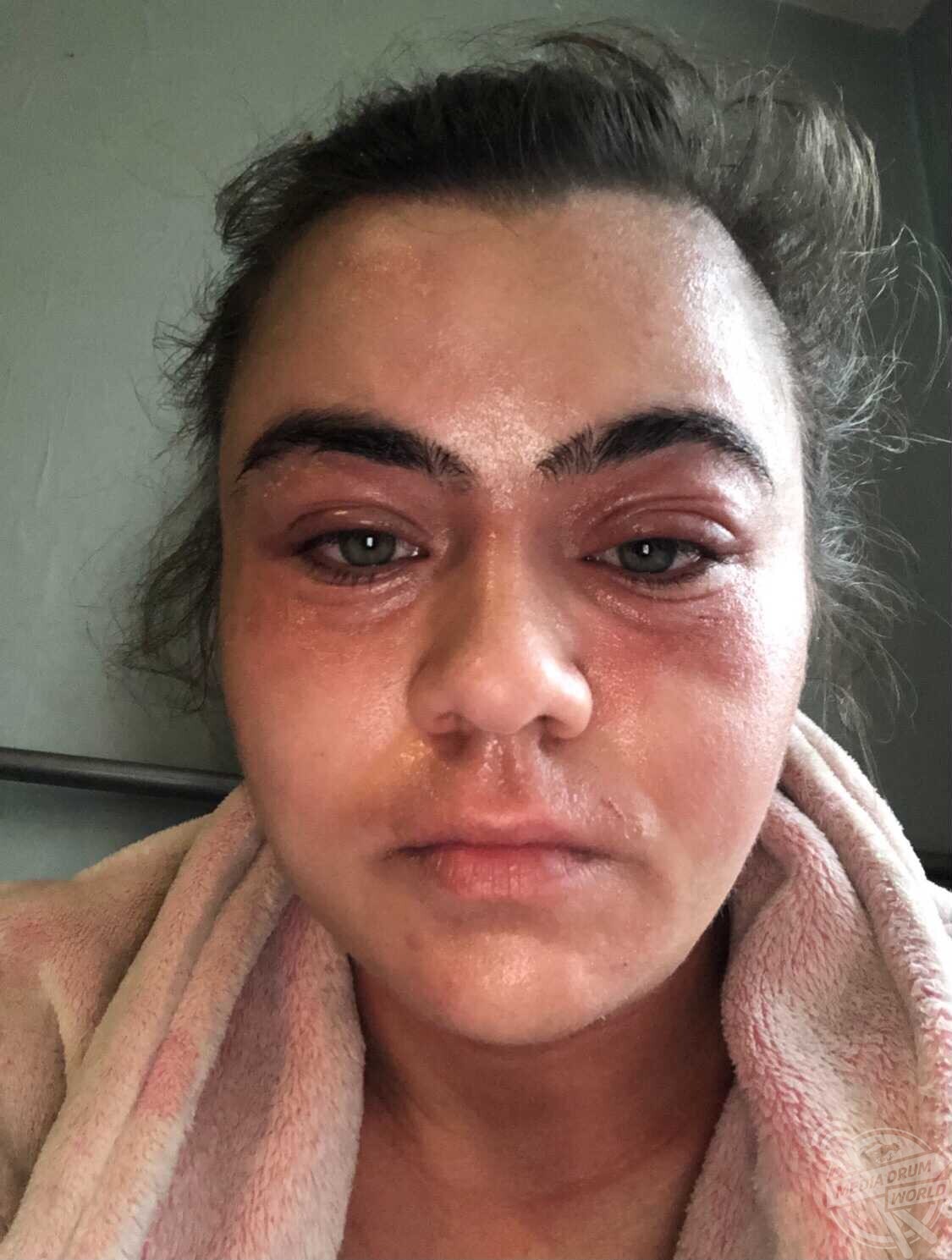
“I just remind myself that this isn’t forever and I make sure to tell myself that whatever I am experiencing that day can’t possibly get worse even though the condition is so unpredictable,” said Gemma.
“Staying positive can be difficult at times – we’re all allowed a cry once in a while – but it’s incredibly fulfilling to know that in the future, I may be able to live a more normal life and this whole process is really making me a much better person – the TSW community is very supportive.
“It’s positively impacted my life in so many ways. Previously, I was self-conscious – always worrying what other people would think of how I looked. From feeling fat and always having some kind of body issue, I really even hated taking photos especially without a filter.

“Now I can appreciate myself and realise that at those points, even on my worst days, there was nothing wrong with me and I will one day be able to be the confident butterfly that I wished I was in the first place.
“Even now, I feel more confident in my skin – more than I ever did – and I leave the house looking like The Thing from Fantastic Four – strong but flaky.
“I think we live in a world where it’s so easy to judge people but we don’t actually know what they’re going through and in the future, there will be a time where no one will know what I have been through.
“I feel this condition makes you think about so many things and live so differently to other people that you really do appreciate your life and you understand how amazing your body is. I feel this has truly made me grounded and I will continue to raise awareness and help others who are suffering.
“The message I want to convey to other people who are in this situation is that it’s absolutely fine to feel however you’re feeling on a day to day, even hour to hour basis. Whether it’s denial, anger, frustration, sadness or even acceptance, the journey takes you on a rollercoaster as you don’t know what you will get next whether it be mentally or physically.

“It really changes your outlook on life, and especially beauty. I don’t think anyone is less beautiful before or during TSW. I really see anyone suffering through this as a real-life hero because really, the best healer and sometimes the only way to heal is time and support can definitely be tough.”
Gemma hopes that by sharing her story she will be able to show others that they are not alone and she hopes to be able to raise awareness of the dangers of steroid creams and the importance of getting to the root cause of eczema.
“Topical steroids are always the first thing to be prescribed for eczema, and then continuously repeat prescribed until you’re on higher strengths,” she added.
“The problem is, your tolerance of steroids can be completely different. There are people who have only used steroids a handful of times and gone through this withdrawal.
“It really hurts me that the doctors consistently told me this was the only option I had and never informed me that you couldn’t use this long-term. They said the opposite.
“I’m sure people will say to ‘read the leaflet’ but it does specify to always use this how your doctor has told you.
“Personally, my doctor was telling me I wasn’t using enough. My mum had consistently asked about skin thinning and it was always denied. I had to stop them as they were no longer working and causing a risk to my health with becoming allergic to an ingredient.
“I feel if this had been explained fully at the beginning my parents and myself would have never gone along with the treatment and it would have saved a lot of suffering.
“I would love it if they began to understand the root cause of eczema rather than masking it.”
For more information see www.instagram.com/allergyfreepositivity





